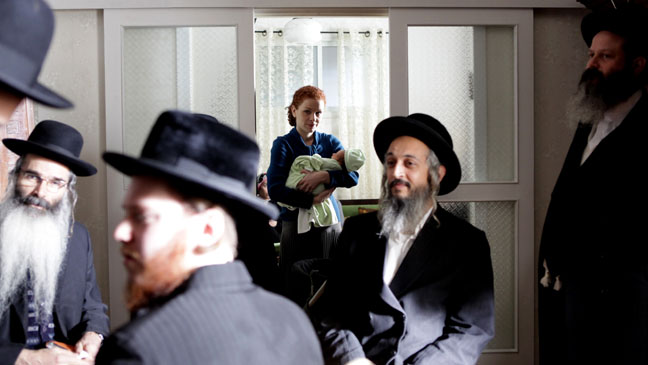Levirate marriages, in which the brother of a deceased man is obliged to wed his widow, has been practiced in patriarchal societies throughout history in order to protect widows and ensure the continuance of the family line. With her sensitive portrayal of one Orthodox Hasidic family, Fill the Void director Rama Burshtein manages to both honour the tradition whilst simultaneously turning it on its head.
Eighteen-year-old Shira (award-winning Hadas Yaron) has been matched with a promising boy and they are beginning to prepare for a wedding when tragedy strikes. Shira’s beloved older sister Esther (Renana Raz) dies in childbirth, leaving behind a bereft husband (the charismatic Yiftach Klein) and a newborn baby. It is Shira’s mother Rivka (Irit Sheleg) who hatches the plan for Shira to marry the widower, thus keeping both her son-in-law and her only grandchild close at hand. Shira must then decide what she is willing to sacrifice for her family.
The trick of reversing the typical gender roles in a levirate marriage is supported by a cast of strong female characters. These women live within a world which seems at odds with contemporary notions of feminism, and yet there is no disputing their power. Rivka’s steely determination to keep her family together, Aunt Hanna’s (Razia Israeli) outspoken criticism of what she sees as her sister’s willingness to sacrifice her own daughter’s future, Shira’s ultimate control of her choice – these women are not victims.
Burshtein shines a light into a culture which exists alongside, yet separate from, the modern world. At its heart is a teenage girl who has been traumatically catapulted into adult responsibility. The claustrophobia of this close-knit world draws the viewer in until it feels one is not just an observer, but part of the family. Shira’s emotions flicker across her face, but are rarely discussed, and the film ends with some ambiguity. It seems Burshtein wants her audience, like her heroine, to make their own decisions.
